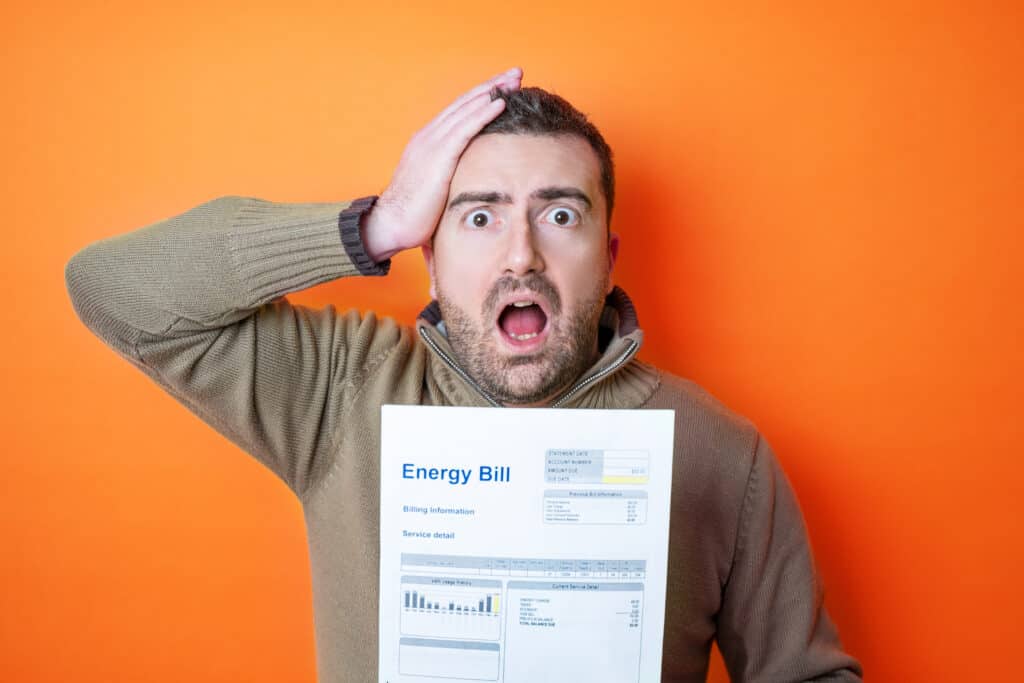Any product or company names, marks, or logos shown on this page are the property of their respective owners. Compare Power is an unaffiliated, independent marketplace. Get unbiased, accurate information backed by our commitment to editorial integrity.
Hey there, Texas! Are you tired of staring at your electricity bill, wondering if you could be saving more?
You’re not alone. The good news is you’ve come to the right place.
We’re about to dive deep into short-term vs. long-term electricity contracts, and by the end of this article, you’ll know exactly which type of contract is the best fit for you.
Stick around, and let’s save you some money!
TL;DR: Short-term contracts offer flexibility, and long-term contracts give you stability. Your lifestyle and budget determine which is best for you.
Short-Term vs. Long-Term Electricity Contracts
You’re here because you’ve got questions. Is a short-term electricity contract worth it, or should you go for a long-term deal?
We get it; it’s a big decision. But don’t sweat it; we’ve got your back.
Your Life, Your Choice
Here’s the thing: There’s no one-size-fits-all answer.
If you plan to stay put for a while, a long-term contract might be your best bet. But if you’re the adventurous type who likes to keep their options open, a short-term contract could be right up your alley.
Short-Term Electricity Contract Benefits
The beauty of short-term contracts is the freedom they offer.
You’re not tied down, and if electricity rates drop, you can jump ship and snag a better deal.
That’s what we call electricity contract flexibility.
If you play your cards right, you can start your contract when demand is low, securing those sweet, low short-term electricity contract rates.
But Wait, There’s a Catch
While short-term contracts can be a bargain hunter’s dream, they come with their own set of risks.
You could find yourself paying through the nose if you’re not diligent about switching companies at the end of your contract.
Long-Term Electricity Contract Advantages
With long-term contracts, you can kick back and relax.
You lock in a rate and enjoy the peace of mind that comes with long-term electricity contract stability.
Budget-Friendly
Long-term contracts are a budgeter’s best friend.
Your rate stays the same, making it easier to plan your finances.
Plus, you won’t have to think about shopping for a new plan for at least a year.
The Downside: Early Termination Fees
Before jumping into a long-term contract, remember that breaking it could cost you. Early Termination Fees (ETF) can be a couple hundred dollars if you aren’t careful.
Is a Short or Long-term Contract Better For You?
The short answer is that it depends. Unfortunately, there is no straightforward answer to tell you which will work best for you.
You’ll want to take a hard look at what you want from your electricity plan before deciding what type of contract you want to sign.
Most ComparePower customers choose 12-month fixed-rate electricity plans.
Your Next Steps
We’re not just another platform; we’re your ally in the quest for the perfect electricity plan.
Our user-friendly interface makes it easy to compare plans, and transparent pricing means you know exactly what you’re getting.
Compare rates and find your best plan today.
Contract Length FAQs
What time of year is electricity the cheapest?
Electricity prices in Texas fluctuate throughout the year, depending on demand.
Summer and winter see the highest electricity demand as people heat and cool their homes.
Conversely, spring and fall are usually when electricity rates are the lowest.
How long are energy contracts?
Energy contracts range in length from three months up to 36 months. The most common term lengths are 6, 12, 24, and 36 months.
Do I need to match my contract length to my lease?
There is no need to match your contract length to your lease. Instead, we recommend picking the contract length that gives you the best rate for your unique electricity usage.
Call us at 855-441-3030 Monday through Friday, 8:30 a.m. to 6:30 p.m., or Saturday, 9:00 a.m. to 4:30 p.m.









